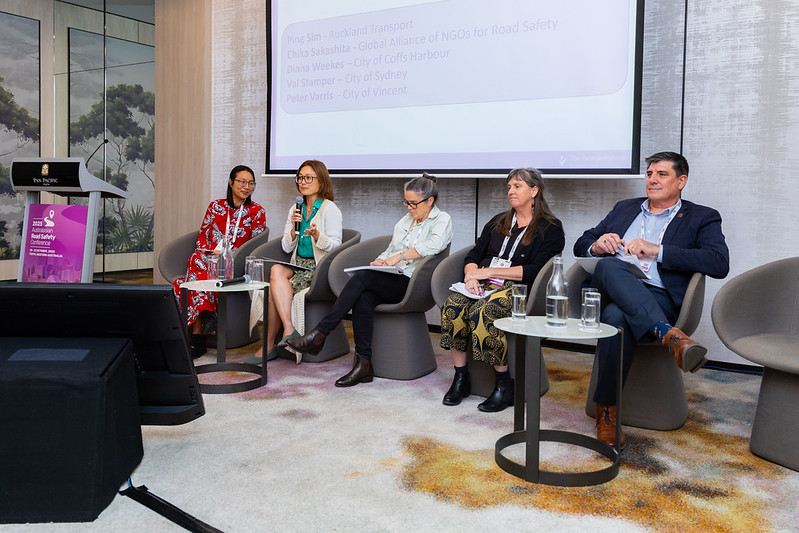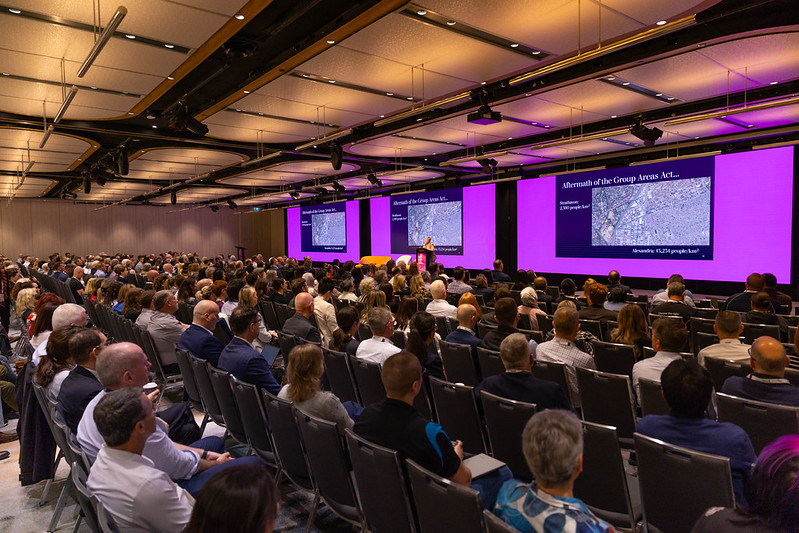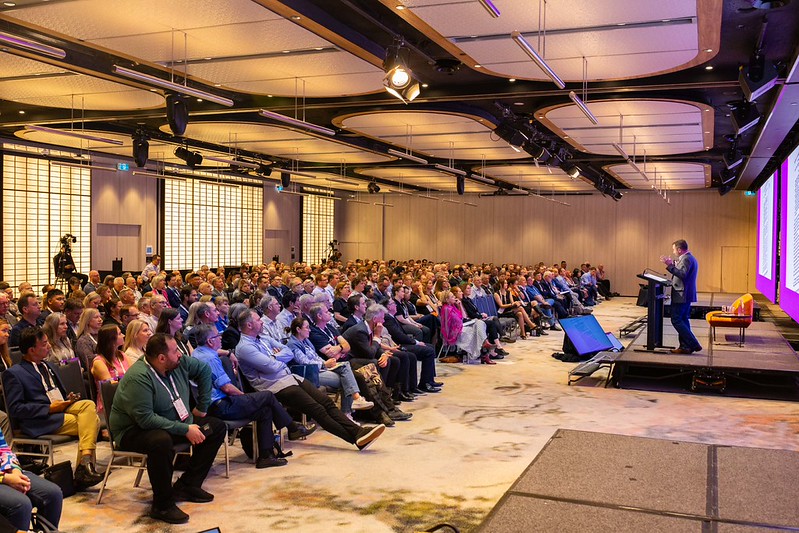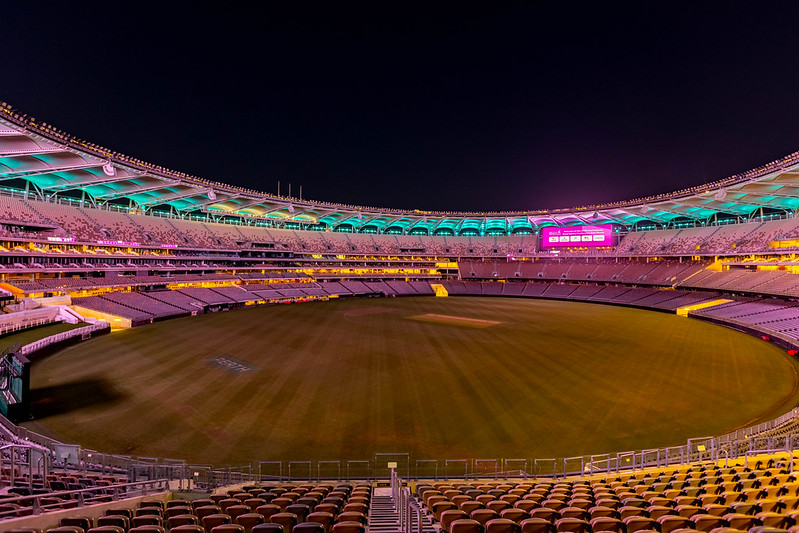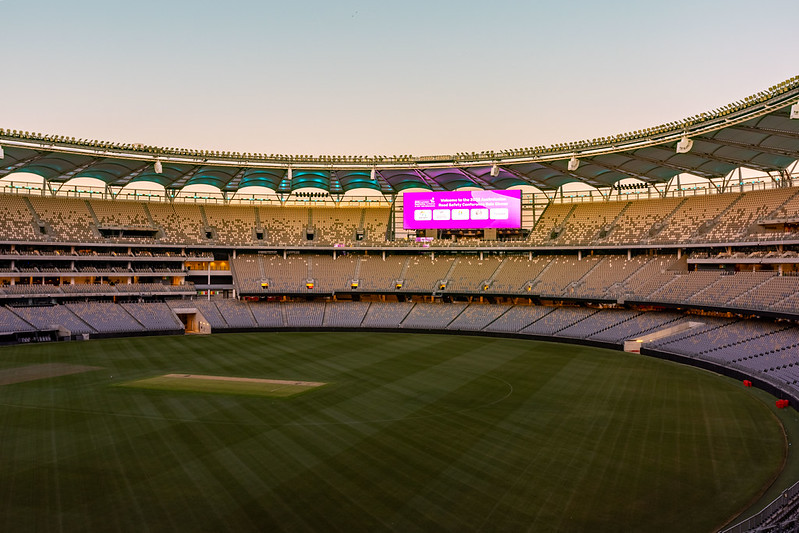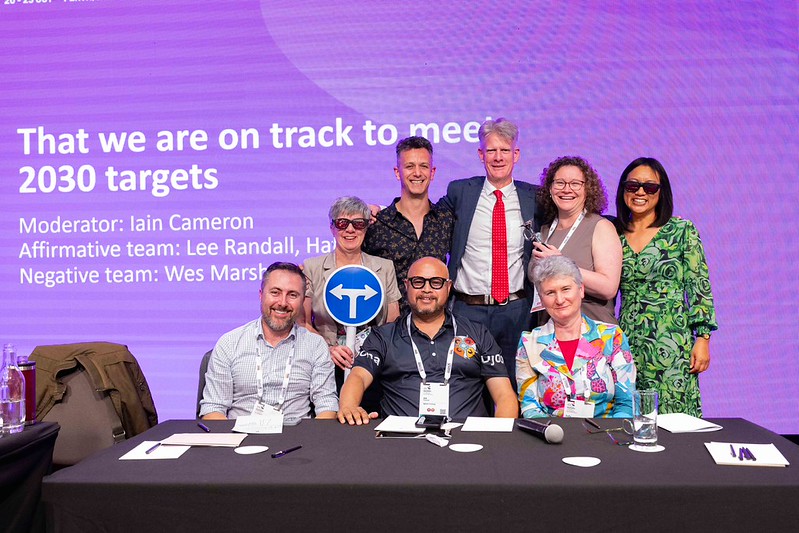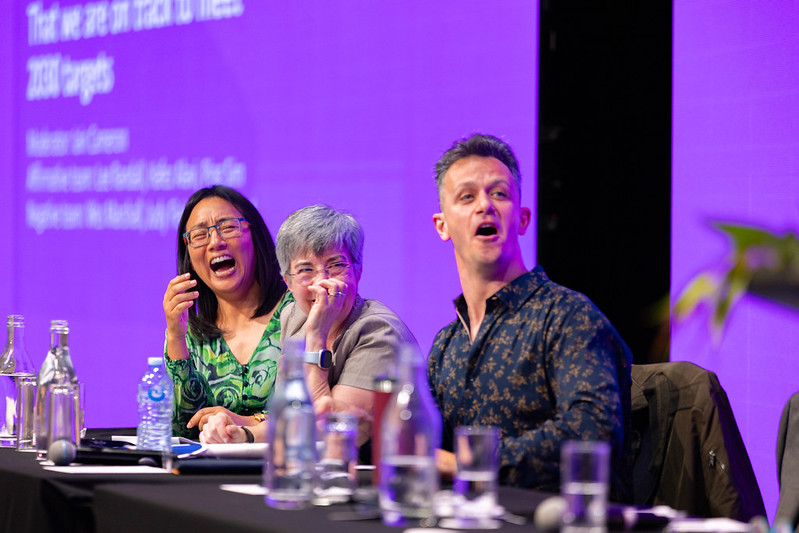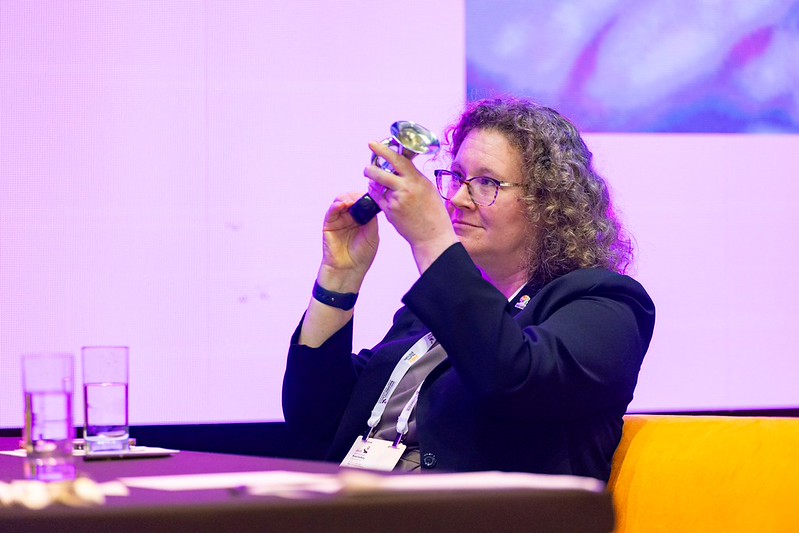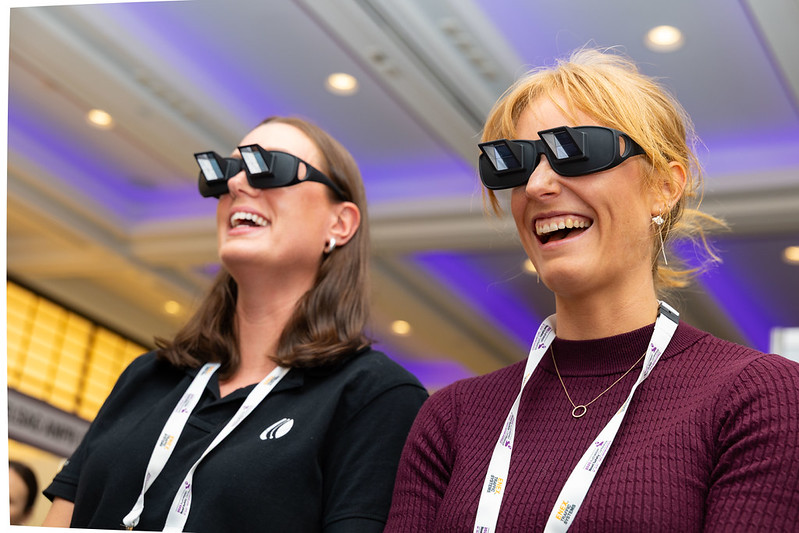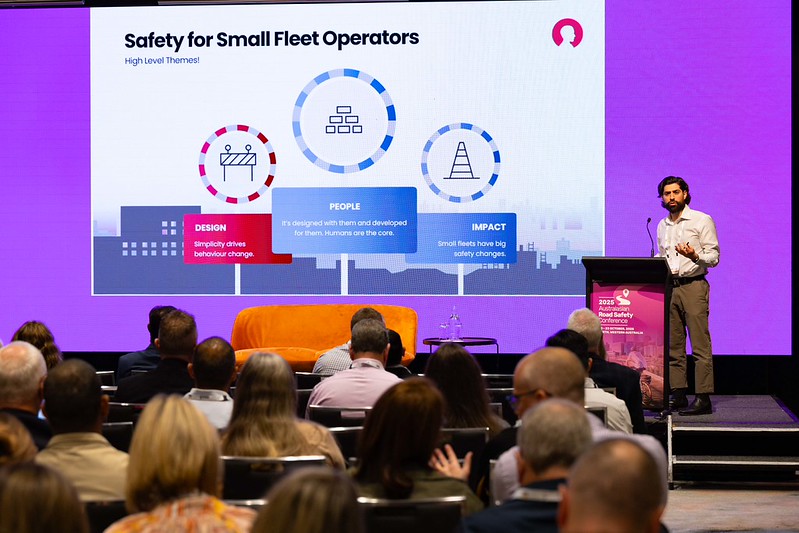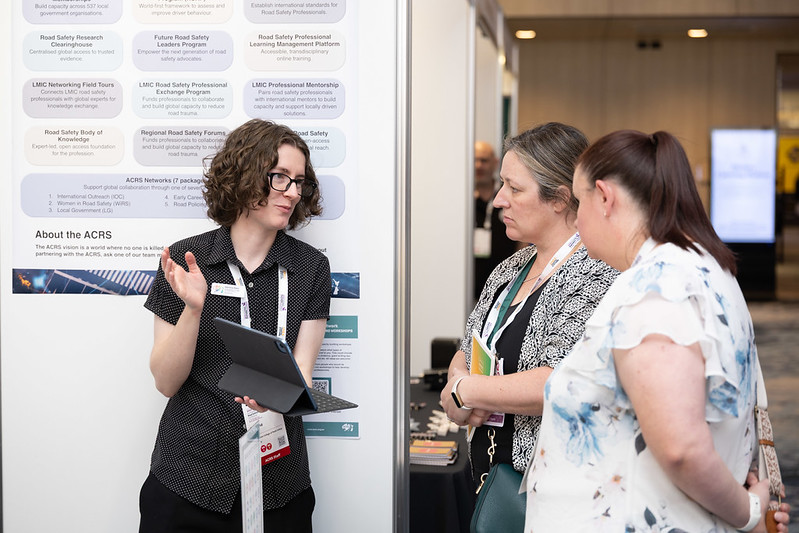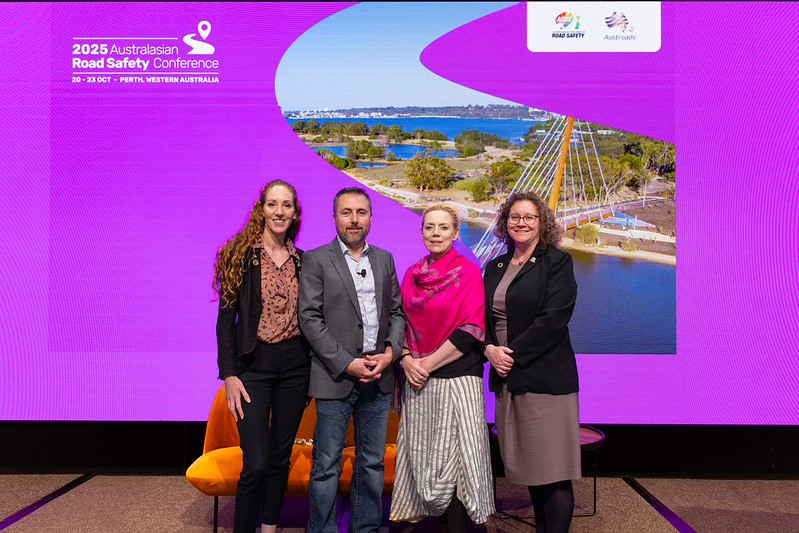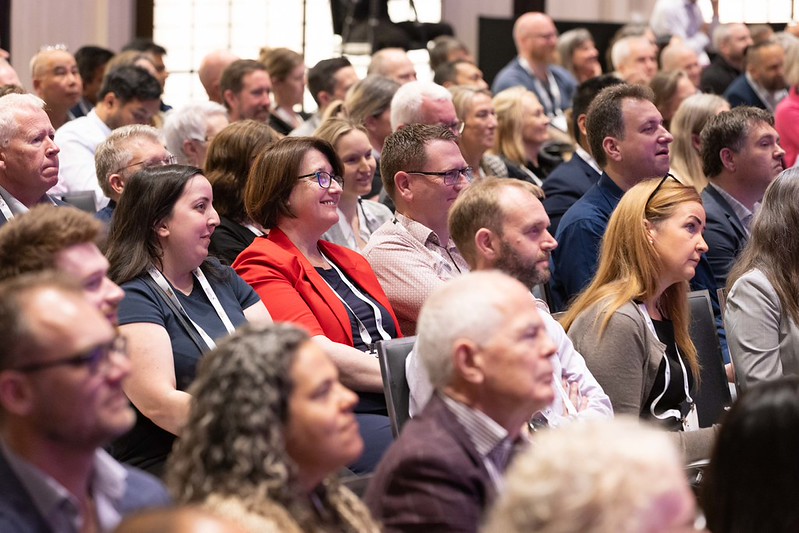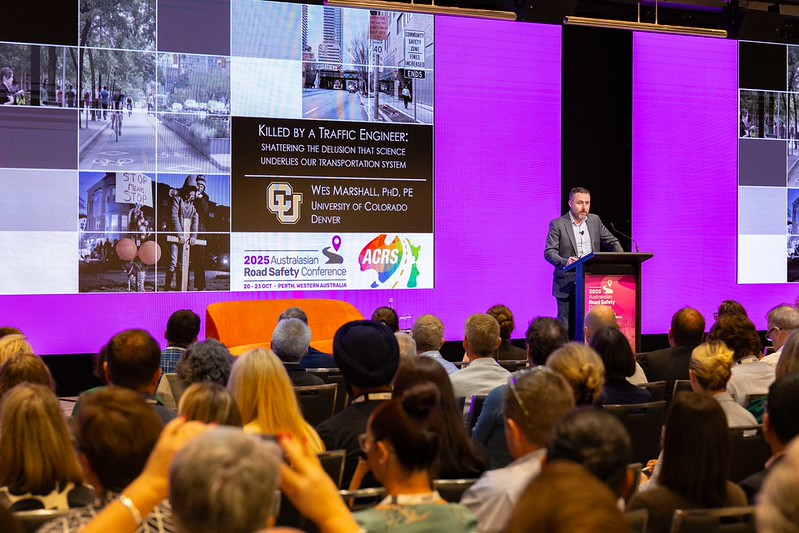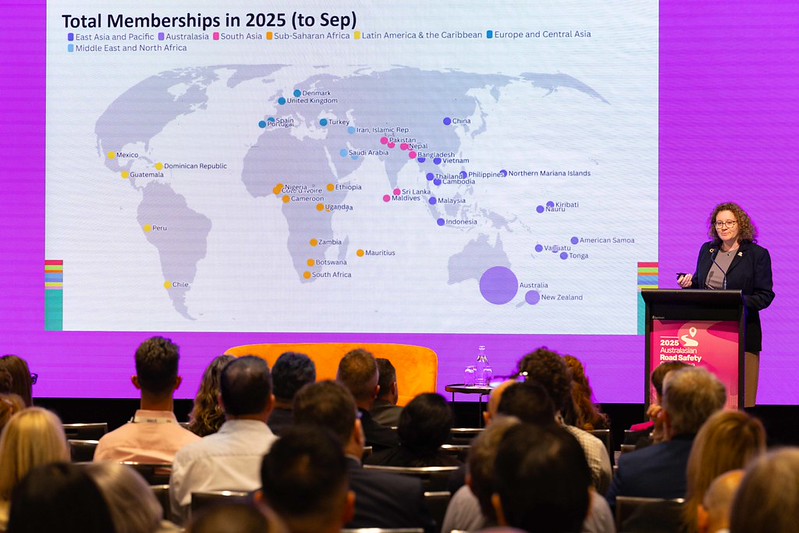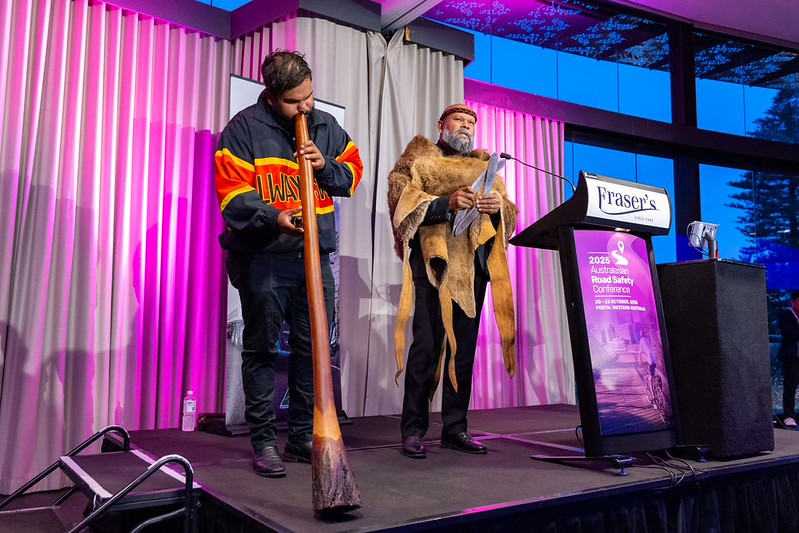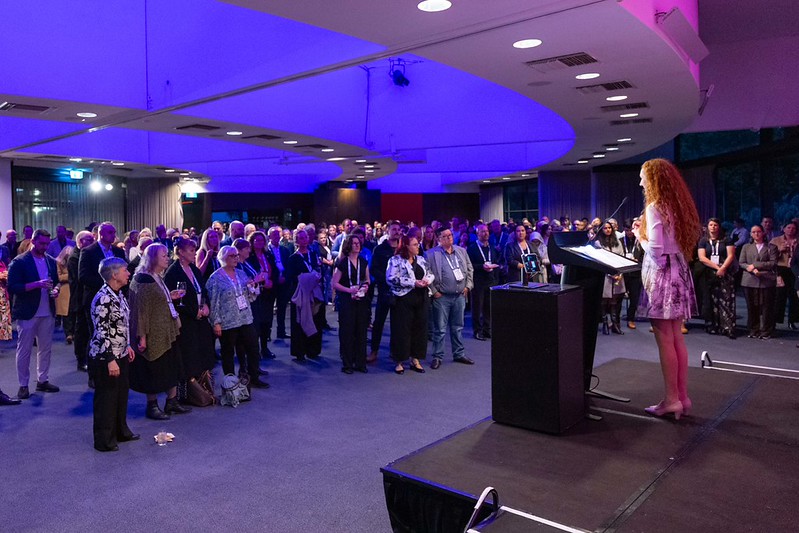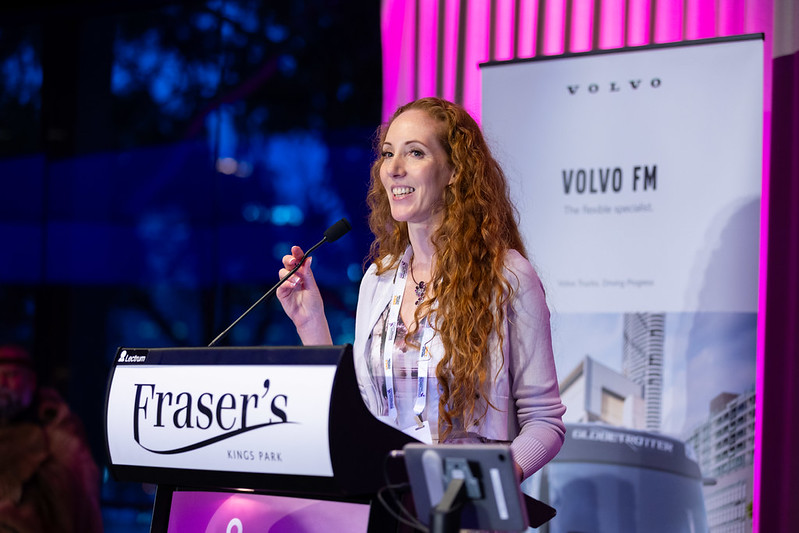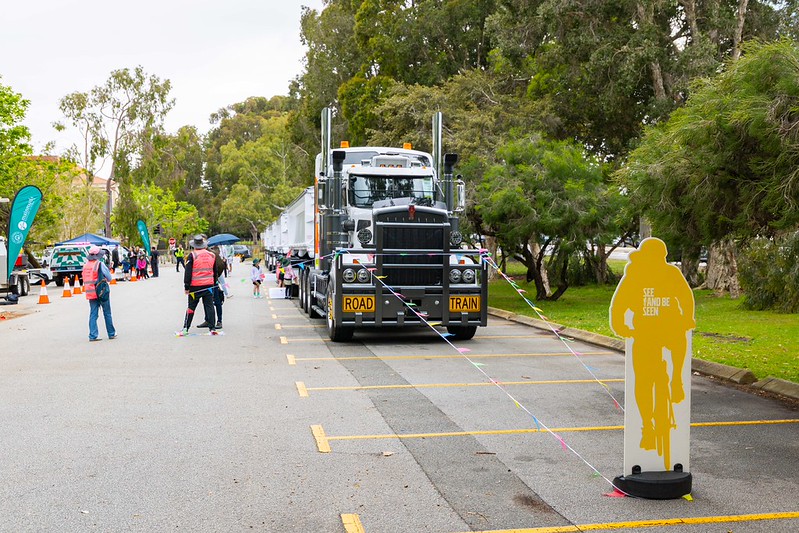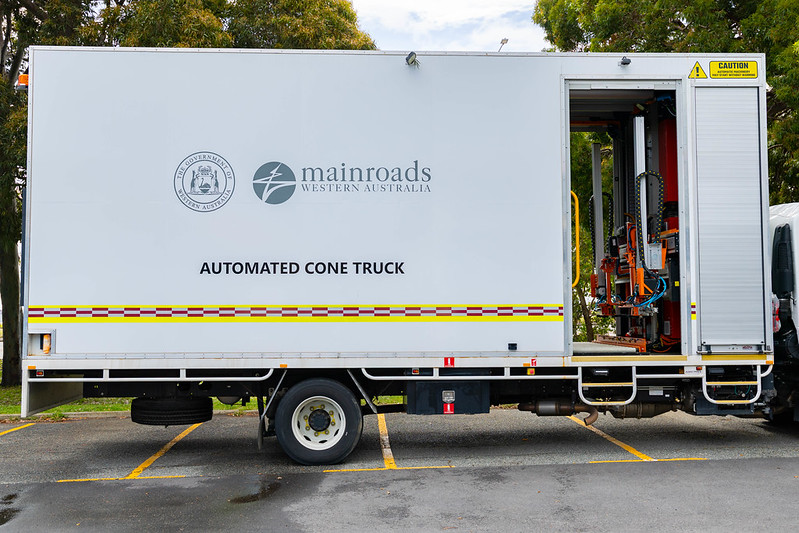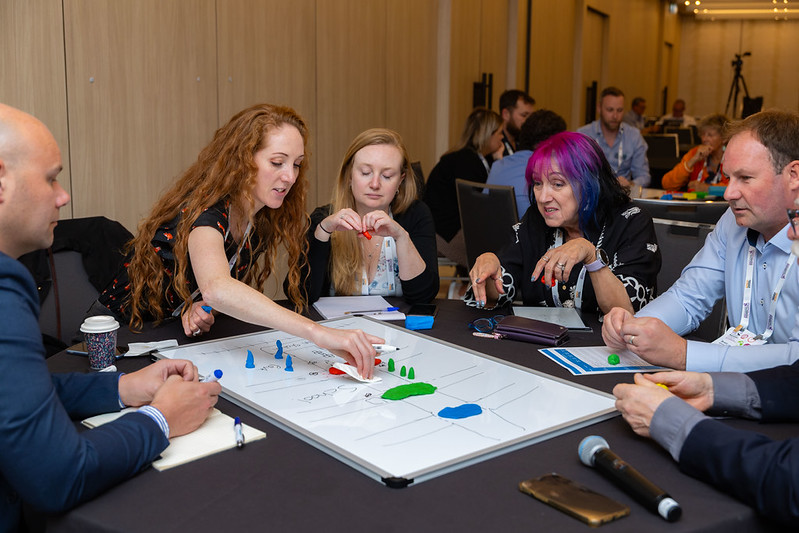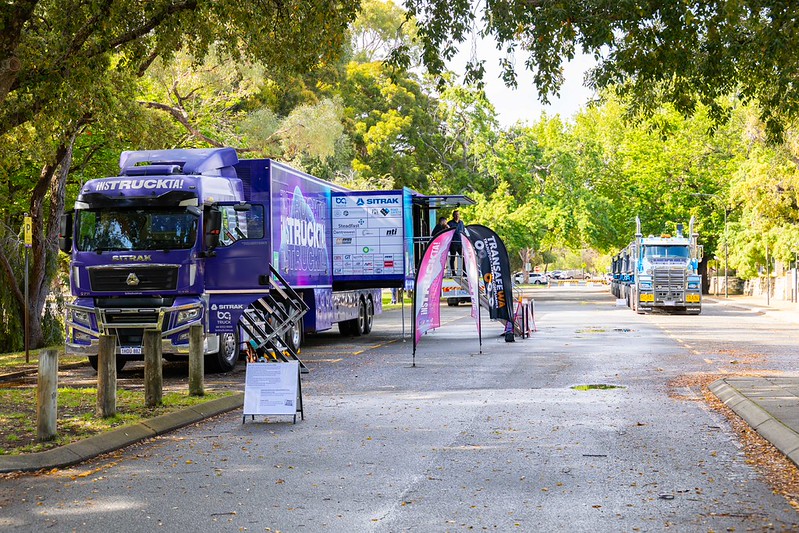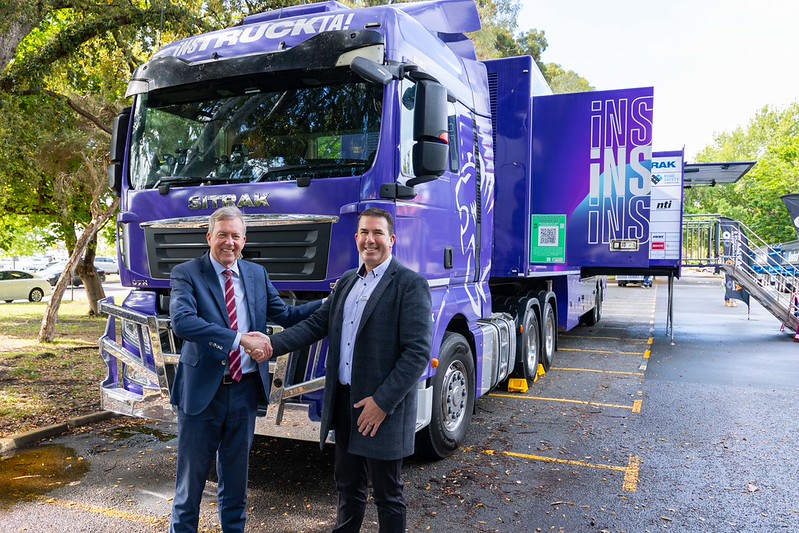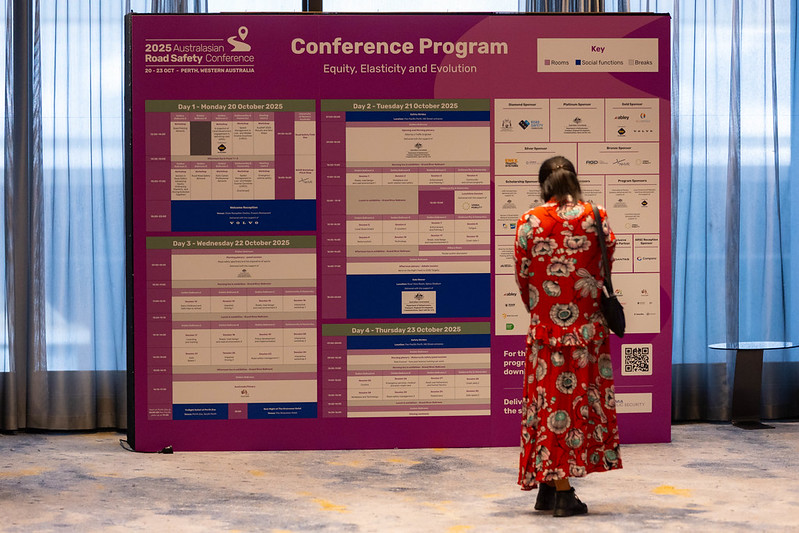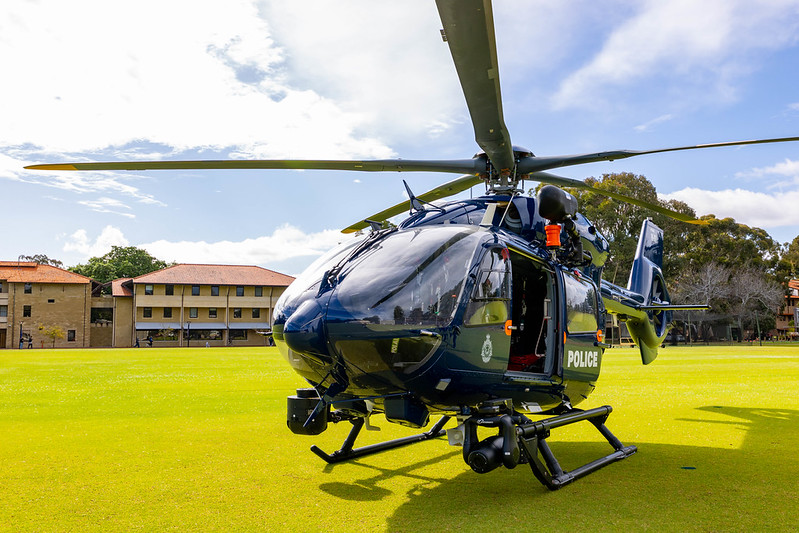The 2025 ARSC, hosted by the Australasian College of Road Safety (ACRS) in collaboration with Austroads, brought together road safety researchers, practitioners, policy-makers and industry from across Australasia and beyond. The theme, Equity, Elasticity and Evolution, spotlighted three vital dimensions of building safer systems: valuing each road user, designing adaptable systems, and evolving toward the future of safety.
Day 1 – Field Day & Opening Workshops
The conference opened in spectacular style with a Field Day at The University of Western Australia (UWA) featuring state-of-the-art exhibits: quad road trains displaying blindspots and stopping distances, driving simulators, automated vehicle rides, WA Police landed their helicopter and displayed new patrol technologies, mobile classroom units and more – offering hands-on access to road safety innovation and research in practice. Afternoon workshops engaged attendees on topics such as road policing, rural safety, women in road safety, early-career professionals and local government. The evening culminated in a Welcome Reception at the State Reception Centre, Fraser’s Restaurant, King’s Park. The WA Chapter Chair Fritha Argus welcomed everyone, and the Welcome to Country.
Day 2 – Keynotes, Exhibition, Research and Debate
Day 2 featured opening addresses by ACRS President Teresa Williams, WA Minister Reece Whitby (Police, Road Safety, Tourism & Great Southern), ACRS WA Host Committee Chair Fritha Argus, ACRS CEO Dr Ingrid Johnston, and Austroads CEO Geoff Allan, followed by an excellent keynote from Prof. Wes Marshall (author of Killed by a Traffic Engineer). Sessions spanned local government, e-scooters, enforcement & policing, fatigue, motorcyclists, technology, roads & road design, crash data. A lunchtime session, sponsored by Verra Mobility, explored ‘Ensuring Fair and Effective AI-Based Photographic Traffic Enforcement’. The afternoon plenary featured a lively debate on the motion: “That we are on track to meet 2030 targets.” The Affirmative team included Lee Randall, Hafez Alavi and Ping Sim; the Negative team comprised Wes Marshall, Judy Fleiter, and Joe Collard. The evening concluded with a Gala Dinner at Optus Stadium, where the ACRS Road Safety Awards were presented.
Day 3 – Advancing Equity & Leadership
The third day opened with a compelling plenary by Dr Lee Randall of the Road Ethics Project (South Africa) titled “Road Safety Apartheid and the Imperative of Equity”, challenging the sector to re-examine justice, inclusion and ethics in our systems. A panel featuring Shane Turner, William Wambulwa, Stephen Kome Fondzenyuy, Katherine Drakeford, Jonathon Passmore and Dr Randall extended the discussion on equity in road safety. Morning concurrent sessions covered early childhood and safe school trips, impaired driving, roads/road design/environment, licensing & training, policy development, safe speed, and road safety management. The afternoon featured the Austroads plenary, “Strengthening Road Safety Management for a Path to Zero”, with Michael Nieuwesteeg, Claire Campbell, Hafez Alavi, Geoff Allan and a panel including Iain Cameron, Jo Cruickshank, Nicole Downing, Craig Hoey and Fabian Marsh, emphasising leadership, governance and best-practice frameworks. Evening events included a Quiz night and the Perth Zoo Twilight Safari in the Savannah.
Day 4 – Final Day & Wrap-up
The final day turned the spotlight on motorcycle safety, led by Prof. Teresa Senserrick. The keynote by Nigel Kapa, “Ride Forever – how post-licence training can work”, was followed by a panel including Nigel Kapa, Shaun Leonard, Jen Woods, Chris Hurren and Kenn Beer. Subsequent concurrent sessions delved into cyclists, emergency services & post-crash care, human factors & road user behaviours, crash data, workplace & technology, road safety management, pedestrians and safe speed. The conference officially closed – chaired by Dr Ingrid Johnston – with a presentation by immediate past President Prof Ann Williamson about the ACRS Capacity Building Program. Dr Joanne Bennett interviewed the four awardees of the ACRS Future Leaders Program, and the 2025 conference prize winners were announced, before the host city for 2026 ARSC revealed as Sydney, Australia.
2025 ARSC Prize Winners
- Best Conference Submission
Chris Brennan – Victorian Department of Justice and Community Safety, Australia
Enhanced site selection tool for road safety cameras - Best Conference Theme Submission
Nils van Lamoen – New Zealand Police, New Zealand
Outcomes of an intensive traffic enforcement operation in New Zealand - Best Submission by a New Practitioner
Hang Nguyen – Asia Injury Prevention Foundation, Vietnam
Youth actions turn grass-roots ideas into practice - Best Submission by a New Researcher
Sajani Siriwardene – Deakin University, Australia
Driver merging preferences, behaviour, and strategies at roadworks - Best Submission by a Practitioner
Nils van Lamoen – New Zealand Police, New Zealand
Outcomes of an intensive traffic enforcement operation in New Zealand - Best Submission by a Researcher
Helen Nguyen – The George Institute for Global Health, Australia
Views on age-based licensing from older drivers, families and caregivers - Best Poster (Judged)
Irene Tse – Auckland Transport, New Zealand
Debunking the myth: Raised crossings don’t create significant congestion - Best Poster (Popular Vote)
Giulio Ponte – Centre for Automotive Safety Research, The University of Adelaide, Australia
Event Data Recorders (EDRs): unlocking crash data for research - Tom McLaughlin Prize for Best Submission with Implications for Improving Child Road Safety
Alice Woodruff – Active City, Australia
Travel to School: New guidance
Sponsored by Little Blue Dinosaur Foundation - Best Submission with Implications for Improving Road Safety Policing
Adrian Wilson – Department of Transport and Main Roads, Queensland, Australia
Estimating the road safety benefits of seatbelt cameras in Queensland - Griffith University, Griffith Criminology Institute – Best Submission with Implications for Workplace and Work-related Road Safety
Phuong Nguyen – Asia Injury Prevention Foundation, Vietnam
Driving Change: Safer Transport Solutions for Cambodian Factory Workers
Sponsored by National Road Safety Partnership Program (NRSPP)
